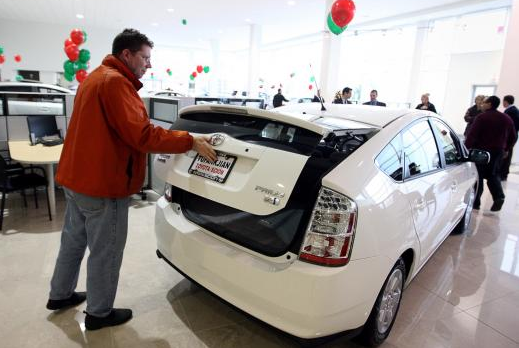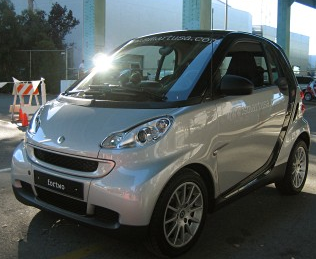Consumers to Pay More, Sacrifice Performance for Better Fuel Economy Vehicles
 Consumers predict higher fuel prices over the coming years and are willing to pay more for fuel economy that meets their expectations and minimizes overall operating costs.
Consumers predict higher fuel prices over the coming years and are willing to pay more for fuel economy that meets their expectations and minimizes overall operating costs.
These are some of the findings in the most recent Powertrain Acceptance and Consumer Engagement (PACE) syndicated study recently released by Morpace Inc.
Fuel economy issues highlight the PACE results, including the fact that 68 percent would sacrifice vehicle performance in favor of improved fuel economy. However, just 48 percent of consumers would be willing to pay more for a vehicle that is environmentally-friendly.
Among the other specific findings related to fuel economy:
- 62 percent indicate they would shop different brands of vehicles in order to get the most fuel-efficient model possible
- Just 28 percent of vehicle owners report complete satisfaction with the fuel economy for their vehicle (including 14 percent of pickup truck owners and 15 percent of minivan owners);
- Reliability (77 percent), fuel economy (69 percent) and cost to operate (67 percent) are the three most important powertrain-related reasons for purchasing a vehicle;
- Innovative and new technologies (31 percent) and being environmentally-friendly (29 percent) were low on the list of importance of powertrain-related reasons for purchasing a vehicle.
“Our clients use PACE as a tool to measure the trends that impact vehicle powertrain design,” said Bryan Krulikowski, Morpace Vice President, Automotive. “What is obvious this year is that fuel economy continues to have a significant impact on consumers.”
 “Powertrain is a critical issue today because consumers are making buying decisions based largely on powertrain performance,” Krulikowski said. “Aside from vehicle quality, fuel economy reigns king among vehicle owners.”
“Powertrain is a critical issue today because consumers are making buying decisions based largely on powertrain performance,” Krulikowski said. “Aside from vehicle quality, fuel economy reigns king among vehicle owners.”
Of the power train technologies covered in the report, hybrid-electric is the leader in terms of purchase interest, though other technologies are gaining momentum. The PACE study explains how these technologies stack up against each other, as well as the perceived strengths and drawbacks of each.
“While many consumers indicate an initial interest in battery-powered vehicles, real-world challenges remain an obstacle to adoption in the marketplace,” Krulikowski said.
Information for the study was gathered from approximately 3,000 U.S. consumers. Consumers were asked a variety of questions on how fuel economy, performance, driving habits, and other attributes impact their interest in next generation powertrains. More info at: Morpace.
About Morpace Inc.
Morpace is a full-service survey research and consulting organization specializing in automotive, financial services, healthcare, retail and technology. Morpace provides global expertise and innovative, proprietary solutions in four core areas: brand and communications; consumer choice; market and product development; and satisfaction and loyalty.
Category: General Update










